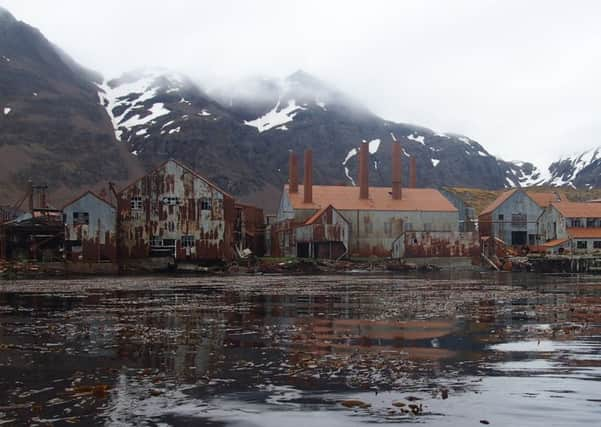Sandy Winterbottom: Climate change tragedy of self-interest


Even in the summer, the climate is harsh, with year-round snow and glaciers that tumble off the mountain tops to sea level. It is a spectacular and desolate place with no trees and just a thin covering of tussock grass and moss. The islands lie at 54 degrees south of the equator. Yorkshire lies at the equivalent northerly latitude – a stark reminder of the huge impact that our Gulf Stream has on ameliorating the UK climate.
When Norwegian explorer Carl Anton Larsen visited the islands in 1903 he reported seeing whales in their ‘hundreds and thousands’. He opened the first whaling station in 1904 and it was quickly followed by others. South Georgia became the world’s whaling capital and the carnage began. Between 1904 and 1965 more than 175,000 whales were processed there.
Advertisement
Hide AdAdvertisement
Hide AdIn the early days, whales were so abundant that only the more profitable blubber was used with the remains of the carcasses left to rot on the shores. Fortunes were made by those willing to take on the risky investments.
The Scots were prevalent among the whalers. At Leith Harbour whaling station, bones litter the shoreline flanked by the rusting remains of tumbledown buildings. It is a place steeped in sadness. In the shallow soils of the adjacent graveyard lie those who died half a world away from their home towns, including a 19-year-old from Edinburgh.
The industry was unmanaged and unregulated because nobody owned it. Short-term profits were prioritised over sustainability. Why would one country act to regulate when others wouldn’t? Whale populations were decimated, one species at a time. The stations gave way to the more efficient factory ships. It is estimated that more than two million whales were killed in the Antarctic oceans. Today you would be extremely lucky to see a whale around South Georgia. The populations never recovered.
These tragedies involving globally-unregulated resources are played out over and over again. Today, our tragedy is climate change. We are steaming towards the cliff-edge of catastrophic climate change. There is no doubt that sea level rise, extreme droughts, floods and population displacement will happen; climate change crosses too many borders and many countries have more immediate self-interests to make the national and international effort to stop it. Politicians seem unable look no further than their wealthy lobbyists and the next election, to be concerned about our collective future.
Climate change is amplified in the polar regions and the startling retreat of the glaciers in South Georgia was evident. In the northern hemisphere, the melting ice cap in Greenland is pouring huge volumes of fresh water into the North Atlantic and significantly slowing the Gulf Stream; Britain’s ‘electric blanket’.
The full consequences of climate change are uncertain. One thing is for sure though, as Bob Dylan said “The times they are a-changing”.
Sandy Winterbottom took early retirement from a career in environmental science and now teaches mindful movement at www.braithe.co.uk